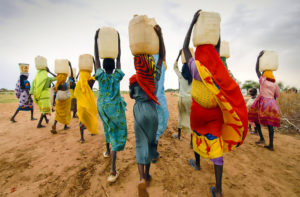
Technical Assistance for Implementation of Civil Society Dialogue and Civil Society Support Programmes (TR2015/DG/01/A5-01/001)
The overall aim of the project is to increase bilateral exchanges and cooperation between CSOs in Turkey and the EU at local, regional and national levels, to promote awareness raising initiatives on importance and benefits of membership of Turkey to the EU within Turkey and EU and on

Strengthening the Internal Market
Project is comprised of six components, as follows: Component 1: Improving the strategic, legislative and institutional framework in area of Free Movement of Goods Component 2: Improving the strategic, legislative and institutional framework in area of Free Movement of Services. Component 3: Improving the legislative alignment with the

Support for Policy Reform Accession and Effectiveness (SUPRAE)
In March 2020, North Macedonia began accession negotiations with the EU. However, the country still needs to meet EU standards, enact essential reforms, and institutional capacities to comply with the acquis and clusters. The project’s goal is to assist North Macedonia in its EU accession by increasing strategic

Technical Assistance for Sorgun Enterprise Development Centre (İŞGEM)
This project was a component of the Regional Competitiveness Operational Programme which is part of the Instrument for Pre-Accession and is designed to support Turkey’s convergence with the EU by increasing the competitiveness of the Turkish economy and reducing regional socio-economic disparities. The project was designed to provide

Support for the Management of EU funds
This project aims to strengthen the operational framework and the institutional capacity for strategic planning, programming, and evaluation of the impact of the EU funds under IPA II Regulation. The project encompassed the full cycle, including strategic planning, programming, implementation, monitoring and evaluation of the pre-accession assistance, strengthening

Technical Assistance Support to the Women’s Breakthrough Project
Over the next century, half the world’s population growth is expected to take place in Africa. It is recognized that one of the continent’s most significant development challenges will be creating enough quality jobs and to employ this population growth. Gender equality, particularly the inclusion and empowerment of

